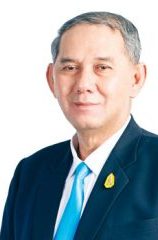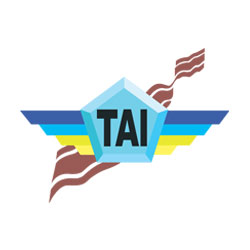In conversation with
AM. Prakit Skunasingha
MD | Thai Aviation Industries Company Limited

FDI Spotlight: Is now the right time for international investors to look at the Thai aviation industry?
Air Marshal Prakit Skunasingha: I have felt for a long time that Thailand has the potential to be the aviation hub of the region. It is well accepted that Thailand is in a central geographic position in order to foster regional trade. This central location is not only convenient for the CLMV region but also as a stop-over destination between East Asia, The Southern Pacific and Australia and Europe. With the correct aircraft technology, such as the Jet Stream system used for transcontinental travel, flight operators could transport passengers from Europe to Japan and use Thailand as a hub.
Furthermore the many years that Thailand has been an industrialised nation means there is the human capital to repair and perform necessary maintenance of aircraft from around the world.
In order for this vision to be realised we need a collective effort across the key stakeholders in our industry. Thankfully in part to our government’s economic initiative to develop the aviation sector as a national key growth driver industry, the dream of Thailand becoming an aviation hub can become reality.
Do you see potential in the continued expansion in the tourism industry in Thailand, and how this will impact the aviation industry?
Air Marshal Prakit Skunasingha: That’s exactly right, as the tourism sector continues to expand, so too can the aviation industry organically grow. The tourism industry has for a long time been integral to the national economic development plan, and as result there are many resources available to the tourism sector. The strategy has largely been successful, with more tourists visiting the Kingdom every year, with over 31 million tourists visiting Thailand last year. The sheer volume of planes landing in Thailand every year has in part benefitted the aviation industry up to this point. But as I mentioned before, for Thailand to change its position in this industry from a popular destination to an aviation hub, there must be large scale collaboration within the three layers of the Thai Aviation Industry: the international aircraft operators, such as Airbus and Boeing, aircraft part manufacturers, companies that are involved in Maintenance, Repair and Overhaul (MRO) for the aviation industry, which is the area in which Thai Aviation Industries Co., Ltd. specialises in.
What challenges must be overcame in order for Thailand to become this hub that you speak of?
Air Marshal Prakit Skunasingha: In my opinion I think our niche industry of MRO is the fundamental platform for Thailand to become a leading aviation hub. As I previously mentioned, every year Thailand welcomes thousands of aircraft into the Kingdom. Before we can talk about aircraft production, we must first prove that we can fix and repair aircrafts from around the world. I believe that we have the capabilities to achieve this goal, we just need to build the confidence of airlines from other nations to use us for their repairs and maintenance. Once we can show our expertise in this area, our investment partners will undoubtedly feel more confidence about using our services, and this could lead to future business in higher value added business such as aircraft part manufacturing and eventually aircraft construction and installation.
This incremental approach will have significant benefits for all parties concerned. For example, the knowledge and skills used to repair aircrafts can quite easily be leveraged to train candidates and staff to aircraft part production. Aircraft manufacturers should look to the automotive industry as a prime example of how Thailand can perform the role of a global industrial base.
Investors must look at the level of skill and innovation in the automotive industry, and envision how with a partnership approach to development, the aviation industry could be booming here as well.
It is important for us to take a patient approach in this respect, as we don’t want to have bottlenecks in our industrial development, where we have ambitious plans, but not the human capital to facilitate demand.
The world’s airline industry is growing very fast. In the next ten years, the number of flights will double. So if we do not turn our attention to the development of infrastructure and the necessary human capital now, we will lose significant opportunities and revenue.
What would be Thai Aviation Industries Co., Ltd. competitive advantages, why should an investor place their trust in you?
Air Marshal Prakit Skunasingha: We came from a military aviation repair company. It gives us a wealth of experience to be able to repair a variety of planes in all shapes and size from both the public and private sector. We can repair more than 10 different aircraft models, as well as helicopters.
Initially it was never our intention to work with the private sector, preferring to work exclusively with the military. However with the explosion of the low cost flight industry, we realised that this was a great opportunity for us to work with the private sector. We are now partnered with the largest low cost airline in the region, conducting the MROs on their fleet at Don Muang airport.
Our aim is to continue our development plan for aircraft repair and maintenance. We are constantly learning how to service new and different models of aircraft to expand our presence in the industry. At this moment we can repair all types of military aircraft, as well as a growing number of civilian planes.
Furthermore we are one of three companies that are permitted to repair aircrafts in Thailand. Due to our strategic location next to Don Muang airport, we want to continue our aggressive expansion with low cost airline partners in the region. The combination of our location and comparative low cost compared to our expertise gives us a competitive edge. We aim to be the cost effective quality partner of choice in the aviation industry. For us, quality is not about price, but about standards, and that means complying to international standards. We currently have ISO 9001/2008 and soon will be 9001/2015 as well as ISA accredited. Lastly and very importantly, we implement HRM the Kings sufficiency economy concept to develop our company, local community and industry as sustainably as possible.
